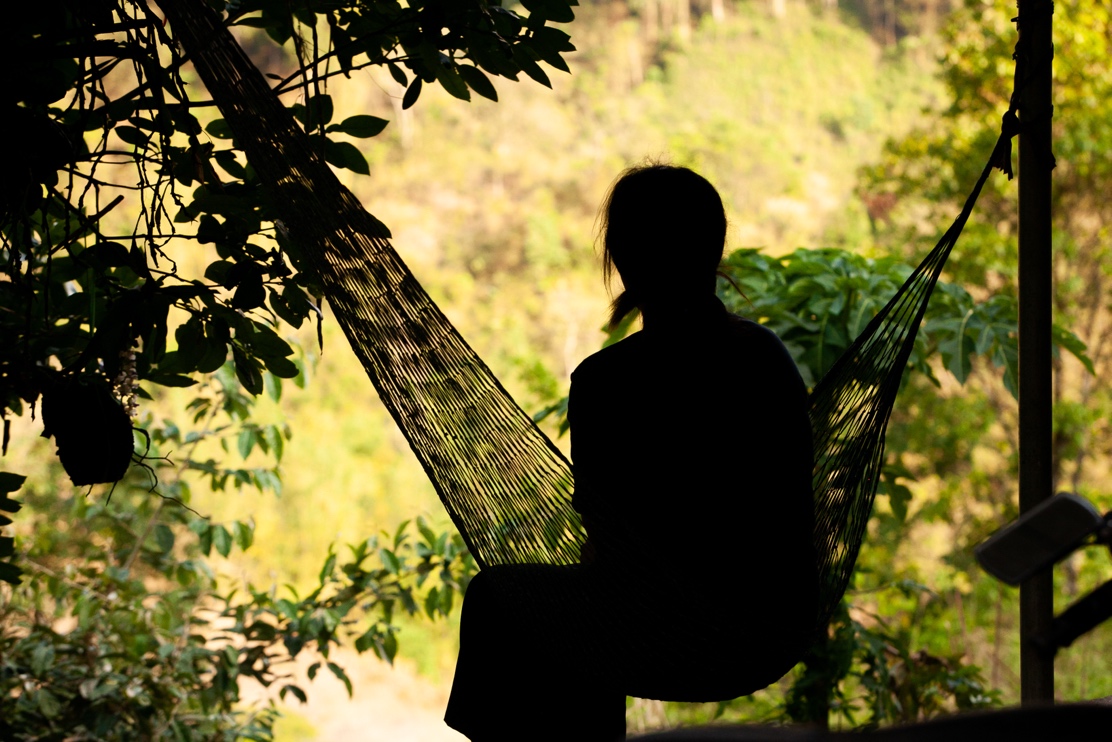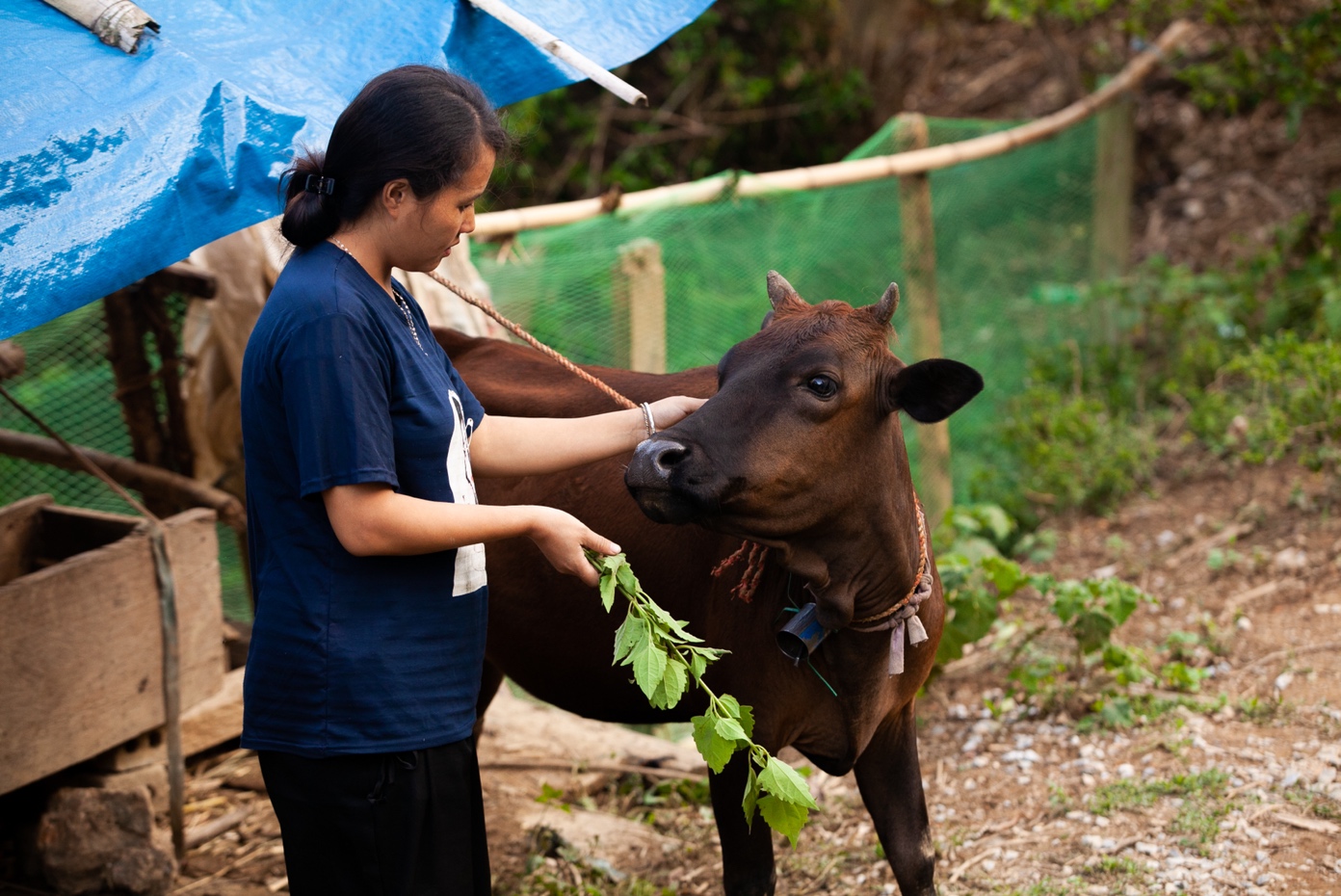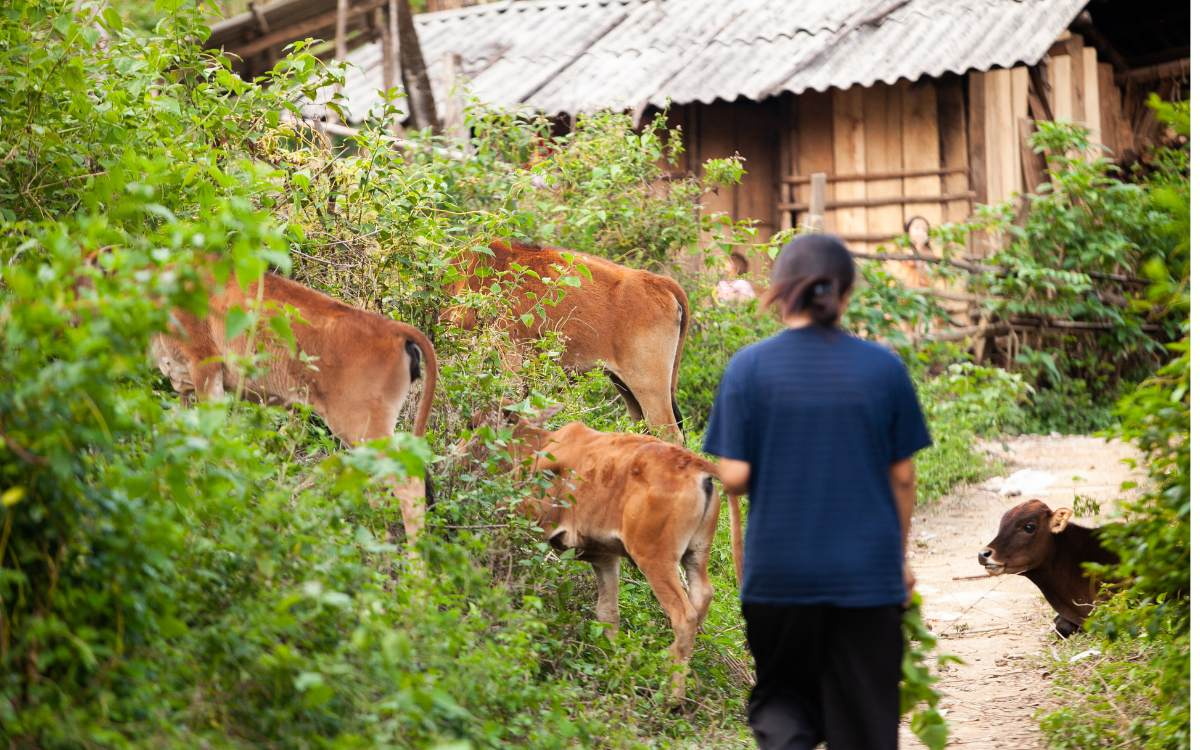If some villagers in Muong Cha district, Dien Bien province, picture Saola*'s family these days in their head, they probably would see a happy family with a couple of young husband and wife working diligently day to day, building up their simple dream of providing a good life for their children.
The young H'mong couple, both born in 1995, experienced an appalling experience years ago, though.
In 2019, they spent their time partly in Viet Nam for farming work during harvesting season and partly in China for seasonal uncontracted jobs as construction workers and cleaners. One day in February 2019, when they were staying in Lao Cai, a Vietnamese province border with China, Saola and one of the other young women, Nhu**, were trapped and trafficked to a Chinese province ("La Xi" as they can recall). When traffickers forced the two of them to marry Chinese men, these women bristled at the idea.

"At that time, they forced me to marry a Chinese man, but I refused. I just wanted to see my husband and children again.",
Saola said, terrified when she recalled this experience.
Police in Muong Cha district said that human traffickers use extremely sophisticated tricks. They often infiltrate and live for a long time in the highland areas around the potential victims. They use phones and social networks to approach and take advantage of vulnerable people, most of whom are ethnic minority women who have little education or are illiterate and have no understanding of social knowledge, so they are easily deceived.
Saola recalled that on the first day after being trafficked over the border; she pretended to be sick and hungry, and she asked for going out buying some food. The two men guarding them did not agree, so they kept Nhu with them and then went out to buy her some rice. Saola was alone in the room, so she figured out how to escape.
She ran for more than a kilometre until she reached the main road and saw a construction site. Saola hurriedly told the workers there how human traffickers had tricked her. The workers were Chinese Mong, so they could understand what she said. This group helped take Saola to the nearest Chinese police station to report the case. Chinese police detained her for a day to investigate and verify her information; then, they took her back to Lao Cai province to hand her over to the Vietnamese police. There, Saola was able to borrow a phone and call her husband. During those days, according to her husband, he was distraught when he came home from work and did not see her. He was not able to contact her at all. He searched for her everywhere and was on his way back to his hometown to find his wife. While passing through Muong Lay district (only 30km from his hometown), he received a call from his wife, so he immediately turned back to pick her up.
While Saola was lucky to be able to escape from the traffickers within several days, Nhu had been kept in China for a year before the police rescued her.
Muong Cha, where Saola and her husband live, is a district in Dien Bien province, located in the northwest area of Vietnam; the district is close to China and shares the border gate with Laos. In such places, human trafficking risks are high, and local people still lack the skills to deal with this complex issue.
"Human trafficking crimes in Dien Bien are quite intricate. The majority of occurrences of human trafficking take place in remoted areas, such as the villages in the Muong Cha district. Authorities report that throughout the four years (2015-2019), over 300 cases of missing women, girls, and teenagers were reported; these individuals were likely trafficked to China.", stated Major Hoang Van Dan, the vice-captain of Criminal, Economic, Drug Team of Muong Cha District Police Department.
To support survivors like Saola in having a more sustainable livelihood, World Vision supported her with a cow and necessary barn-building materials. It was a part of World Vision International Viet Nam's intervention, sponsored by the Ministry of Foreign Affairs of Japan through the project named "Human Trafficking Prevention for Women and Girls" (2020-2023).

Saola received a cow and necessary barn-building materials as supports for building a more sustainable livelihoods.
Saola first joined World Vision' Saving for Transformation (S4T) group in 2020. At first, she did not lay much trust in the World Vision nor the group's operation as she saw that it was no help when everyone contributed just a couple of dollars to the savings fund. Yet gradually, Saola changed her mind and grew her trust in World Vision when she saw how small yet effective the savings fund is for households. She later can borrow the money from the group to buy materials for building her house from time to time.
.png)

Saola is raised and bred a herd of four cows from the first cow supported by the project.
From 2021 to 2022, Saola eventually became the leader of her commune's Saving for Transformation group. "I was thrilled to join the activities of the S4T group as a leader and guided by World Vision staff on how to lead and operate the group effectively. Besides, I have acquired helpful knowledge on gender equality, human trafficking prevention, and livestock farming.” — Saola cheerfully said.
For her children, she wishes them to grow up well. "Seeing them joining World Vison's Children Club and cared for at school is such a blessing.", Saola said.
The local government has invited Saola and Nhu to share their stories with their villagers on many public occasions, including community leader dialogues and local job fair events to raise people's awareness of the human trafficking issue while fostering compassion and alleviating discrimination and stigma towards the returnees.
--
* the names of the characters have been changed for safeguarding purposes

